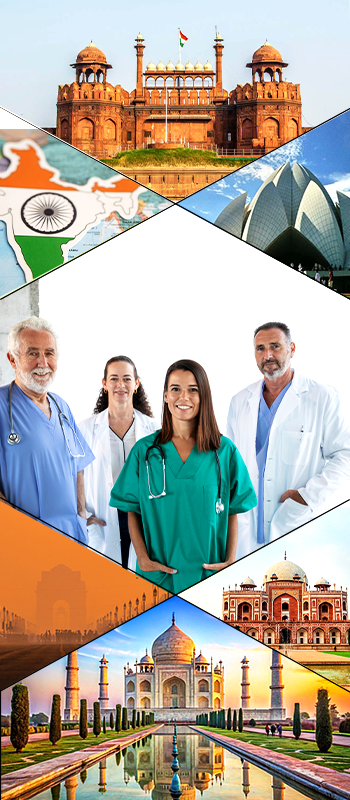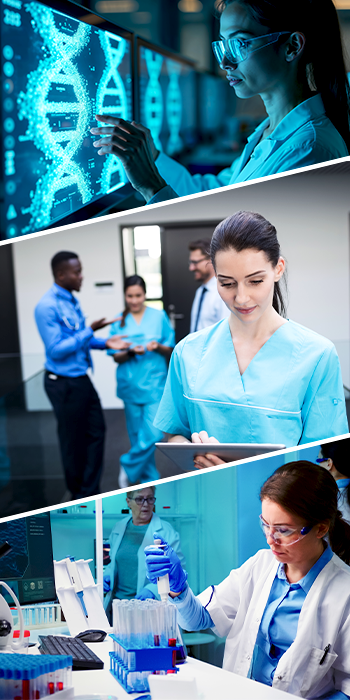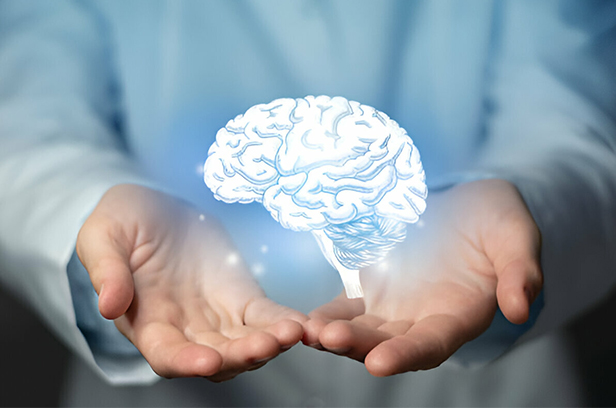Having a severe illness or medical condition can be too much for patients and those dear to them. It could be a neurological condition or an orthopedic condition, but there is a need to act fast before it becomes worse. Sadly, regular treatments can only address the symptoms and not the root cause. And that is where stem cell therapy is a new development that has the potential to save UK patients and extend to others across the globe.
From state-of-the-art alternative treatments to badly needed care, the country now provides top-end stem cell treatment in Pakistan for various conditions. This is enticing British patients with access to first-class medical attention and integrative aftercare that enhances the health and well-being of the patients. If you wish to understand why stem cell treatment is captivating people in the UK, and how it does it, then keep reading!
An Innovative Medical Approach: Stem Cell Therapy
Know About Stem Cell Therapy
Stem cell therapy is a new alternative therapy in modern medicine and a possible cure for many diseases and traumas. This form of therapy employs the body’s own natural ability to heal, replace, and regenerate injured tissues thereby transforming regenerative medicine.
What Are Stem Cells?
Stem Cells are undifferentiated biologic cells that develop into specialized cells which are capable of dividing and sustaining an organism, and are capable of developing new cells to repair and regenerate injured tissues and organs.
These stem cells are also needed for any growth, repair and healing. Stem cells are very specialized cells capable of self-renewal and differentiation. In addition, stem cells play a big role in the evolution of regenerative medicine and advanced therapies.
Types of Stem Cells
Adult Stem Cells
Adult stem cells (somatic stem cells) are found in various tissues and organs of the body. They are less pluripotent than embryonic stem cells. They have an important role in healing and maintaining the tissue they reside in.
Adult stem cells are widely used in the clinical management of diseases like bone marrow diseases, orthopedic trauma, and neurodegenerative diseases.
Human Umbilical Cord Tissue Mesenchymal Stem Cells
They are extracted from the Wharton’s jelly of the umbilical cord. They are immunologically potent and competent for regenerating, thus bio-relevant and clinically significant in the management of inflammatory and degenerative disorders.
They are ethically free since they are taken from the umbilical cord of a newborn, and they also have low immune rejection risks. They are being researched for medical procedures in regenerative medicine, especially for neurological and autoimmune diseases.
Bone Marrow Stem Cells
Within the bone marrow, there are stem cells, classified into two major categories:
- Hematopoietic Stem Cells (HSCs): These cells develop into blood cells, such as red blood cells, white blood cells, and platelets.
- Mesenchymal Stem Cells (MSCs): These stem cells can differentiate to form bone, cartilage, and fat cells, making them useful for overall orthopedic and joint treatments.
Bone marrow stem cells are often used in bone marrow transplants for leukemia, lymphoma, and other blood-related pathologies.
Adipose Stem Cells
They are isolated from the fat tissue, which is rich in MSCs (adipose stem cells). They have higher regenerative capability and enhanced tissue repair. It’s used in cosmeceuticals, orthopedics, and anti-aging medicine. Since they are accessible for harvesting using liposuction, this type of cell source is preferable for stem-cell-based regenerative medicine.
In modern medicine, each of these types of stem cells possesses unique properties and applications, which can be utilized for the treatment of various diseases as well as the regeneration of tissues.
How Does Stem Cell Therapy Work?
Harvesting of Stem Cells
Human stem cells are first harvested from sources such as bone marrow, adipose tissue, or umbilical cord blood. It may also be harvested from the patient’s bone marrow or from a family member.
Processing & Culturing
Once harvested, the cells must be processed, usually in a laboratory, to increase them and enhance their healing capabilities.
Transplantation
Then the stem cells are injected or infused into the patient’s body via a needle to the affected area in order to pay him a visit.
Regeneration & Repair
After entering the body, the stem cells get to work in facilitating repair by differentiating into the types of cells that are needed, reducing inflammation, and secreting growth factors that preserve tissue repair.
About UK
The UK (United Kingdom) refers to an independent state consisting of England, Scotland, Wales and Northern Ireland. England, though having very few activities, is rich in culture and history, along with its global influence. Popular sites in the UK are Buckingham Palace, Stonehenge, and the Tower of London. With London as its center, the economy is varied. The United Kingdom is a parliamentary democracy, having a constitutional monarchy as its governing system, with King Charles III as head of state, and the prime minister being the leader of the nation. It boasts an excellent education system, with colleges like Oxford and Cambridge being places of study from all over the world.
Aspects of UK life most closely linked to the National Health Service (NHS). Formed in 1948, the NHS treats individuals free at the point of delivery, financed chiefly through taxation. This includes a broad range of healthcare services ranging from GP consultations, hospital treatment, and accident and emergency care. The NHS itself is an enormously popular institution, whose accessibility and quality have been widely praised, yet it is also experiencing difficulties, notably long waiting lists for certain treatments and shortages of staff. As well as the NHS, there is a private system of healthcare for those who can afford to pay and wish to be treated more rapidly.
The other most important aspect of UK culture is the diversity, encompassing thriving communities from a variety of ethnicities. London, Birmingham, and Manchester cities flaunt that diversity on their sleeves, in festivals, foo,d and traditions. The UK has also contributed enormously to the arts, music, and literature: Shakespeare, The Beatles, and J.K. Rowling, who reached global heights, are just a few in a long roll of greats. It is most famous for its sporting culture, particularly football (or soccer in the USA), rugby, and cricket. Brexit’s Blows — Economically, Politically, PersonallyThe United Kingdom is still a major player on the world stage, even though Brexit has caused political and economic problems for the nation.

About India
India, the largest populated country in the world, is a land of great diversity, a rich history, and a land of immense cultural heritage. South Asia, is bordered by a number of countries and is bounded by the Indian Ocean in the south. India is one of the oldest civilizations of human history, with the Indus Valley Civilization, the Maurya and Gupta empires—and then the Mughal and British occupation. Achieving independence in 1947, India has proceeded to become the global largest democracy, juggling cacophonous traditions with rapid advancement.
With drugs, technology, manufacturing, and space exploration being some of the nation’s most rapidly developing economies Mumbai, Delhi, and Bangalore are economic centers, but the agricultural and rural sectors are also part of the nation’s economy. Indian achievement in science and technology, particularly with ISRO’s space missions, has also attracted worldwide acclaim.
The health sector has witnessed an incredible rise, and India is now a place where the world has come to obtain inexpensive treatment, from complex operations to Ayurveda and even alternative medicine, with world-class health centers. Healthcare units in rural places still face limitations and efforts to fill the gap through government programs and digital health.
And with geographies and cultures so diverse, India is a global tourist destination. There are 22 official languages, a number of religions, and countless festivals that make the country a colorful mosaic of tradition and modernity. The geography of the area is from the great Himalayas to the peaceful beaches in the south, along with ancient monuments such as the Taj Mahal, forts of Jaipur, and Kerala backwaters that attract millions of tourists. This news is presented to you by the attempt made and experienced through its food, festivals, arts, and technology.
Why UK Patients Choose India for Advanced Stem Cell Treatment?
Stem cell therapy is one of the most popular therapies globally, and patients from the United Kingdom (UK) are also opting to travel to India for treatment. India has become a hotspot for stem cell therapy with its world-class medical infrastructure, expert specialists, and affordable solutions. The following are the key reasons that make India the first choice for this revolutionary treatment.

World-Class Healthcare Facilities
India has some of the foremost hospitals and research centers engaged in stem cell therapy. These places provide quality treatment that is on par with Western facilities, using up-to-date technology.
Highly Skilled Specialists
Indian scientists and physicians in regenerative medicine have a wide experience. They are mostly trained in leading medical centers, offering expertise in the application of stem cells to treat cerebral palsy, spinal cord injury, and neurodegenerative diseases.
Affordable Treatment Costs
Cost is the major reason why UK patients go to India for stem cell treatment. Treatment in India is much cheaper compared to health care by private hospitals in the UK. Even when one considers the cost of travel and accommodation either way a patient’s saving on the treatment itself can make 60-70% savings against UK treatment charges.
Faster Access to Treatment
Waiting lists in the UK are long for specialty treatments, so the time is taken for care. Indian hospitals ensure prompt appointment and treatment start times so patients receive timely medical intervention.
Development of Advanced Research and Innovation
Stem cell research has advanced tremendously in India with ongoing clinical trials and new therapies. Various medical institutions in India collaborate with global research groups so patients can take advantage of the latest treatment protocols.
Holistic and Well-rounded Patient Care and Support
They also provide great patient support services like customized treatment plans, language support, and rehabilitation programs after treatment. With this all round nature of an organization, overseas patients go through a smooth and comfortable experience.
Approvals and Normalized Ethics
Leading hospitals in India follow strict clinical guidelines and are internationally accredited by organizations like JCI (Joint Commission International) and NABH (National Accreditation Board for Hospitals & Healthcare Providers) to guarantee safe and economically priced medical care.
Global Stem Cell Care As Your Trusted Partner for Stem Cell Therapy
Global Stem Cell Care is a trusted partner as a consultancy and regenerative treatment provider for patients from anywhere in the world. They have a team of regenerative medicine experts, who are ready to develop a treatment plan for patients according to their needs and conditions. They also provide regenerative therapies like stem cell injections for anything from autoimmune diseases to orthopedic diseases. Here are reasons to select Global Stem Cell Care as your partner:
- Specialized Medicine: Global Stem Cell Care provides you with medicine based on the type of disease you have — they have a good deal of knowledge regarding stem cell therapy.
- Advanced Treatments: Therapies developed through contemporary day stem cell research, in order to be able to cure such as degenerative neurological disorders, orthopedic disabilities, and chronic disorders.
- Team of Experts: Deciding on the most appropriate medical treatment for patients at every stage of their journey is experienced, by physicians and other medical professionals.
- Global Reach: Patients from all over the world come to the center to be treated, making it a world-class stem cell therapy center.
- Patient-Centric Approach: Global Stem Cell Care prioritizes patient well-being by offering compassionate care and seamless treatment experiences.
- Extensive Services: Around-the-clock support is provided, from initial consultation to post-treatment, to give the patient an easy time.
- A Fully-Fitted Center: The center boasts modern facilities that ensure a safe and pleasant treatment process.
- Educational Resources: Patients are informed about their disease and treatment choices to enable them to make effective decisions.

Treatable Disease Through Stem Cell Therapy
For patients in the UK looking for minimally invasive procedures to treat a variety of conditions, stem cell therapy is a promising alternative to surgery that can be painful and invasive. Stem cell therapy is a cutting-edge treatment that uses the ability of stem cells to turn into a variety of cell types to promote the repair and regeneration of damaged tissues and organs. Here is a list of different conditions that can be treated with stem cell therapy:
Neurological disorders, which impact nervous functions, causing a variety of physical, emotional, and mental challenges, have now been made curable simply by stem cell therapy. Stem cells can repair damaged neurons, lower inflammation, and sustain neural regeneration, this assists in regaining mobility, and mental functioning, and improves the quality of life.
- Neuropathy
- Intellectual Disabilities
- ALS/MND
- Parkinson’s Disease
- Cerebral Palsy
- Muscular Dystrophy
- Alzheimer’s disease
- Brain Injury
- Multiple Sclerosis
- Stroke
- Spinal Muscular Atrophy
- ATAXIA
- Global Developmental Delay
- Encephalomyelitis
- Encephalo Dysplasia
- Viral Encephalitis
- Syringomyelia
- Hypoxic Ischemic Encephalopathy
- Peripheral Neuropathy
Stem cells can differentiate into any cell type tissue in the body, and their role in healing organ-specific acute and chronic diseases is to support the regeneration and replacement of damaged organs or tissues to regain lost function. Now, UK patients seeking alternative therapies for heart and nervous system-related ailments have access to such non-invasive treatments as stem cell therapy. Stem cell therapy can be used to treat the following conditions:
- Liver Disease
- Kidney Disorder
- Cardio Vascular
- Lungs Disease (COPD)
- Burger’s
- Critical Limb Ischemia
- Erectile Dysfunction
From macular degeneration to optic nerve impairment, resulting in loss of vision, eye diseases have the capability of seriously affecting daily life. Conventional treatments don’t treat the cause, they treat the symptoms alone. Since stem cell treatment can repair compromised tissue, diminish inflammation, and enhance eye function, it has now provided UK patients with hope. It helps in the restoration of optic nerve function, corneal injury, and retinal cell injury through mesenchymal stem cells (MSCs). Stem cell therapy is an interesting option for patients with advanced eye disorders.
- Optic Nerve Atrophy(ONA)
- Age Related Macular Degeneration
- Retinitis Pigmentosa
- Optic Nerve Hypoplasia
- Optic Neuropathy Stem Cell Treatment
- Eye Injuries Stem Cell Treatment
- Stem Cell Treatment for Retinopathy
- Glaucoma Disease
- Retinal Detachment
- Septo Optic Dysplasia
Orthopedic conditions involve the bones, joints, muscles, ligaments, and tendons and cause pain or disability and the inhibition of one movement. They can be caused by aging, trauma, or genetics. Stem cell treatment is a non-surgical technique for repairing injured tissues and cells, reducing inflammation, and enhancing mobility. Employing the natural healing of the body, this alternative therapy is safe and effective. Stem cell therapy has been employed to treat the following diseases such as:
- Osteoarthritis
- Fibromyaligia
- Osteoporosis
- Osteopenia
- Osteomalacia
- Systemic Lupus
- Spinal Cord
- Rheumatoid Arthritis
- Sports Injuries
- Ankylosing Spondylitis
- Avascular Necrosis
- Degenerative Disk
- Sciatic Nerve Injury & Sciatica
- Shoulder Injuries
- Cartilage Repair
Stem cell therapy balances the effects of aging by restoring injured tissues, decreasing inflammation, and enabling cells to renew themselves. This treatment tightens the skin, provides a protective bio-layer to support optimum organ function, and improves overall wellness—all leading to better, longer lives. On a cellular level, stem cells comprise a new and dynamic mechanism of healing, offering the promise of a longer healthier life.
- Vitiligo
- Anti- Aging
- Look Fit
- Hair Loss
- Skin Burns
- Major Skin Abrasions
- Feel Fit
- Body Performance
- Supportive Care
Diabetes is a lifelong disease that causes heart, eye, kidney, and nerve problems by making the body unable to control blood sugar because it doesn’t make enough insulin or makes ineffective insulin. Stem cell therapy is observed to regenerate insulin-producing beta cells in the pancreas, by restoring the glucose balance in blood, reducing complications, and offering long-lasting relief from the diabetes treatment. Stem Cell Therapy is Used to Treat:
- Type 1 Diabetes
- Type 2 Diabetes
- Diabetic Foot Ulcers
- Diabetic Nephropathy
- Diabetic Neuropathy
Infertility refers to being unable to become pregnant after 1 year of unprotected intercourse. Stem cell therapy may be beneficial to many couples, as it can restore the damaged reproductive tissue (ovarian or testicular) that has been destroyed, restore testicular or ovarian function, and normalize hormone imbalance to treat infertility. Conventional medications are not always effective for most patients, and they prefer newer procedures. Stem cell therapy is a new approach to restore damaged reproductive tissue and induce fertility.
- Female Infertility
- Male Infertility
Besides the above-mentioned disease, stem cell therapy also offers hope to UK patients with other diseases by stimulating immunity, replacing unhealthy cells with healthy cells, and treating the disease rather than the symptom. This new treatment supports overall health and regeneration. UK patients access the newest treatment through stem cell therapy, which heals and recovers, and potentially combats chronic illnesses while improving quality of life.
- Down Syndrome
- Wound
- Connective Tissue
- Pancreatitis
- Ulcerative Colitis
- Psoriasis
- Inflammatory Bowel Disease
- Sensorineural
- Crohn’s Disease
